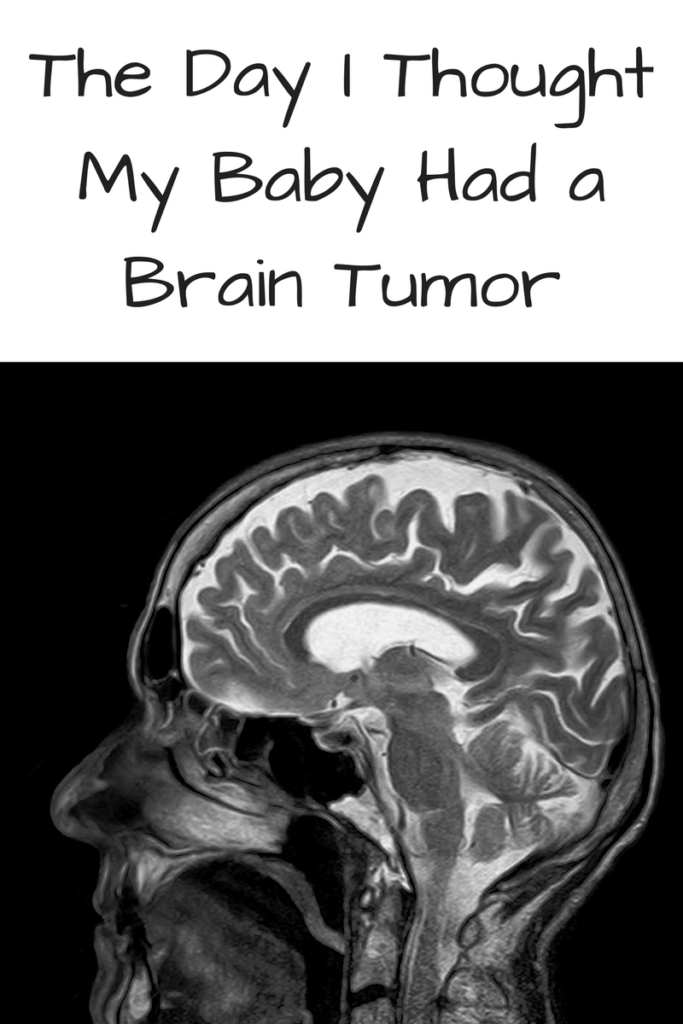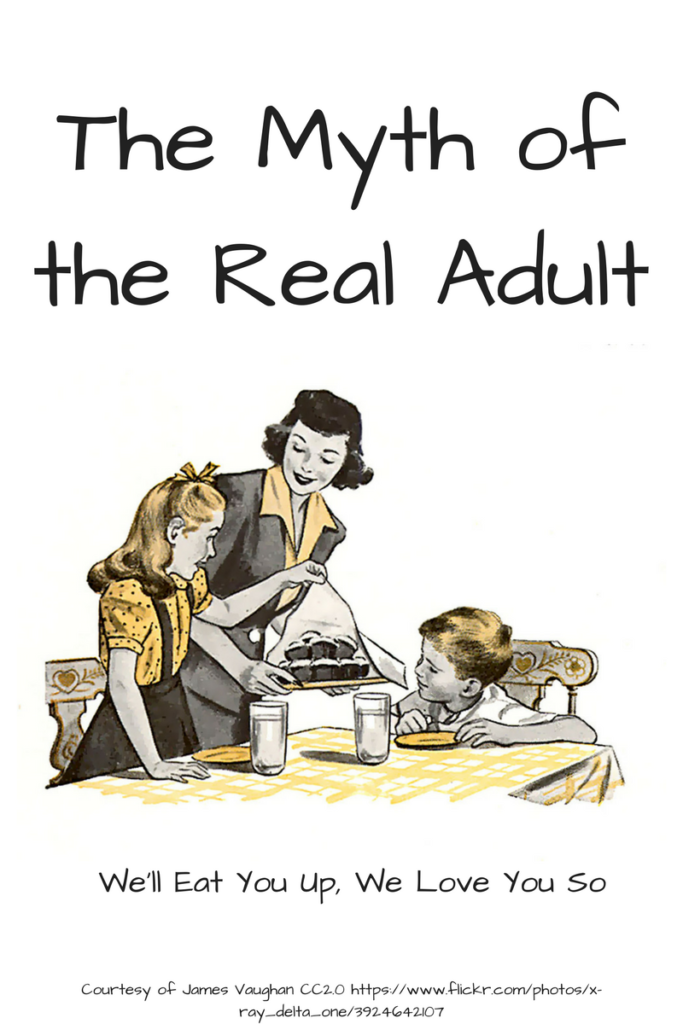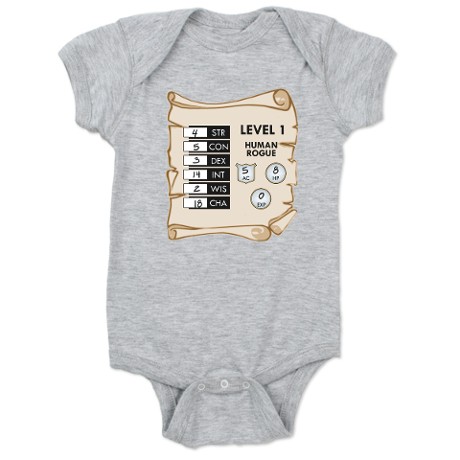
My son has the most beautiful blue eyes in the world. But they aren’t quite flawless. In fact, they’re uneven; his pupils dilate to different sizes. I never noticed it until my husband pointed it out, but from then on it was obvious. While I still think they’re gorgeous, they caused one of the most stressful periods of my life as a mom.
Chris noticed the difference in Sprout’s eyes when he was about three months old. We were eating at a diner booth lit by an old-fashioned lamp. At first, we thought it was a trick of the light. Nonetheless, we agreed we should bring him to the doctor – just in case. Uneven pupils can indicate a concussion, right?
The First Round of Tests
The call to the nurse the next morning didn’t assuage our fears. They encouraged us to come in for an appointment right away. Clearly, this wasn’t a common issue. When we got to the pediatrician, he said that yes, Sprout’s eyes were uneven. With a look of concern on his normally optimistic face, the doctor recommended making an appointment immediately with a pediatric ophthalmologist.
Chris and Sprout went to the specialist without me. I desperately wanted to go, but I couldn’t take time off right after returning from maternity leave. To dilate Sprout’s pupils, the doctor administered eye drops. If both pupils were the same size after the eye drops, there was no underlying problem. But if they were still different, he would need “more tests.” A dreaded phrase. His pupils still were off by several millimeters. We were off to another specialist.
Part of the 15%?
The next stop was the Children’s National Medical Center in downtown Washington, D.C. After giving Sprout even stronger eye drops derived from the main component of cocaine, the specialist found his pupils were still different sizes.
On one hand, he said that 85 percent of kids with this result are fine. They just have an inborn quirk. But the other 15 percent? They have a brain tumor or something else dreadful pressing on the nerve leading to the eye. 85% usually isn’t bad odds. But any number feels like bad odds when you’re talking about your infant possibly having a brain tumor.
To find out for certain, Sprout would have to have an MRI. Because most MRIs require patients be perfectly still, they’re difficult for adults to do. They’re impossible for infants – unless you put them under anesthesia.
Even with national experts caring for him, the thought of anyone putting my baby under made me catch my breath. Not to mention the horrible possibilities of the potential MRI results.
All of it seemed horribly predestined. My pregnancy and his early babyhood had gone easily compared to the horror stories of people I knew. I felt like this was the other shoe dropping.
The earliest appointment was available in a month. For the first few weeks, I was fine; I simply refused to think about it. Every time the thought of the appointment wandered into my mind, I shoved it out.
But then, the Children’s National Medical Center started an ad campaign at the subway stop I walked through every day. My baby’s upcoming test struck me square in the face every morning. I flinched each time, averting my eyes. The ads were supposed to be comforting, but all I could think was, “He could be one of those kids. My baby could have cancer.”
Facing the MRI
This thought pounded through my mind the day of the appointment.
As we paced through the winding hallway from the security desk to the check-in to the MRI waiting area, I saw so many sick children. Children with scars on their heads, children in wheelchairs, children with bandages. And those were only the outward signs. The horror that raged through their little bodies was left up to the imagination.
I couldn’t help but think of Sprout here for his second, third, fourth, seemingly infinite treatment. As I looked at the parents, I saw a future version of myself. I’ve been in situations that others would find terrifying, but that hospital is the scariest place I’ve ever been.
In the waiting room, I bounced Sprout. I couldn’t stay still. Time slowed in a way that it hadn’t since I had been in labor. When they finally called us, the staff were calm and smiling without being excessively so. The nurse complemented us on using cloth diapers, saying how rarely she saw them. The anesthesiologist explained that they usually don’t allow parents to stay when they put the babies under.
We must have hid our anxiety well; they called us in a few minutes later. Sprout was restrained with the smallest Velcro straps. I held his tiny hand as they put the mask on. He squirmed and then fell still.
Chris and I waited in the cafeteria. We held food and hot tea in our shaking hands. We shifted back and forth in the sculpted plastic and metal seats. We talked about the hospital, about politics, about everything but the answer to “What if?”
When they called us back, Sprout was lying on a hospital bed. He was so still that I could hardly tell if he was breathing or not. I ached to hug him, but we had to wait for him to come out from under the anesthesia. I hadn’t fed him for hours, so my breasts were sore. As he started to stir, I started to breathe again. I picked him up and cradled him.
Hearing the News
The days waiting for the results dragged on and on. After a few days, the doctor called Chris directly, informing him that the MRI was clear. I was frustrated to hear the news second-hand – it would have felt more concrete to hear it straight from the doctor. Relief washed over me anyway.
We had our follow-up appointment and final report a few weeks ago. This time, the hospital wasn’t so threatening – it offered a potential confirmation of health, not illness. Everything checked out normally. The doctor said he was relieved that nothing had changed. In the report, he said Sprout is a “a delightful young man,” which I thought was an amusing way to describe a nine-month0old.
Now, I look into Sprout’s blue eyes and see an inquisitive baby looking back at me. But behind that beauty, there’s a lurking fear, a reminder of what might have been. Fortunately, I also know that the fear is no match for our love for him. I know even if he was sick, he and his eyes would still be beautiful. Because beauty and love always win out over fear.
Unfortunately, this wasn’t the only struggle our family’s had. I talk about the complications with my second pregnancy over at the Good Mother Project. For hearing more about the joys and the struggles of our experiences as parents, be sure to follow us on Facebook.




